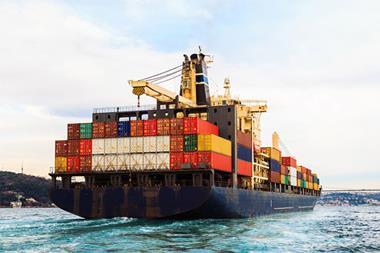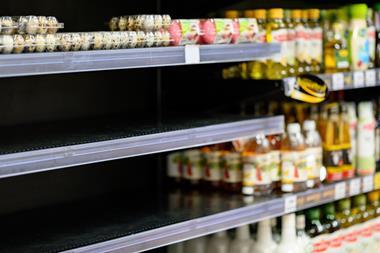Clothing recalls increased 78%; NGOs are uniting to push back against ‘fast fashion’ and its environmental impact
Sedgwick has published its latest European product recall index report, which reveals that recalls for both electronics and clothing were still running considerably higher in Q2 than before the pandemic, at respectively +47% and +6%.
In food and pharmaceuticals, recalls seemed to be gradually returning to post COVID-19 levels. Looking at H1 2021 as a whole, the same trend can be observed for medical devices while recalls for toys decreased compared with pre-pandemic levels by 40%.
However, there is still a long way to go before some of the issues of the past year recede. The report notes that companies with global supply chains and a heavy reliance on efficient manufacturing are feeling the effects more than others.
2021 brought widespread business interruption as a result of COVID-19 and Brexit which resulted in supply chain challenges as well as economic recession.
In addition, there were semi-conductor shortages, data and cybersecurity issues and continued apprehension around the safety, quality and transparency of goods and labelling.
Sector by sector:
- Automotive recalls grew by 16%. Injuries remained the leading risk 78% while passenger cars were the most impacted category 59%. Semiconductor shortages and quality issues have been exacerbated by growing trends for electrification, telematics and automation.
- Food and beverage recalls have slowly returned to pre-pandemic levels with a slight 8% increase. Non-bacterial contamination was the leading cause of recalls 36% with aflatoxins the most likely threat.
- Pharmaceutical events increased 8%, driven primarily by safety issues. Nearly a third of recalls 31% were from France.
- Medical device recall activity dropped 7%. This remains higher than the 2020 quarterly average but below 2019. Quality issues represented the most common reason for recall, accounting for 29% of instances.
- Electronics recall events dipped by 12% but still represent a 36% increase compared to the 2020 quarterly average. In total, 75% of events were associated with electric shock and linked to products such as chargers and cables, lighting chains, hair styling tools and appliances. 83% of recalled products originated from China.
- Toy recalls continued their Q1 downward trajectory with a further 19% drop. Chemical risk was the most common cause of recalls 44% with more than half these relating to plastic dolls.
- Clothing recalls increased 78%. Children’s apparel dominated the notifications 72% with strangulation hazards the most frequent cause.
The report identifies some of the key trends that will influence recall levels going forward. This includes:
- Across all sectors, there are more testing and quality requirements as the EU develops new frameworks to support its economic, environmental and safety challenges.
- The proposed ban on the sale of new petrol and diesel cars starting in 2035 will revisit the need for better battery safety of hybrid and electric vehicles.
- New pharmaceutical legislation proposed for the EU and UK will look to overhaul their regulatory systems impacting the global pharmaceutical industry.
- Implementation of the EU Medical Device Regulation and proposed revisions to the General Product Safety Directive have also made good headway.
- Whilst not a leading cause of food recalls, undeclared allergens will likely increase (from the 32 events experienced in Q2) as we approach October when Natasha’s Law comes into full effect. Businesses in England, Wales and Northern Ireland will need to be prepared to provide full ingredient lists and allergen labelling on all pre-packaged food available for direct sales.
- Non-governmental organisations (NGOs) are getting more proactive too; in the clothing sector, they are uniting to push back against “fast fashion” and its environmental impact.
“Given how quickly business and regulatory environments are evolving, these businesses will have to rely more on expert partners. With the right data, planning and support they can help uphold commitments to customers, compliance and supply chain partners, while protecting reputations among the stakeholders that matter most,” said Luke Evans, recall consultant of Sedgwick’s international brand protection division.




















No comments yet